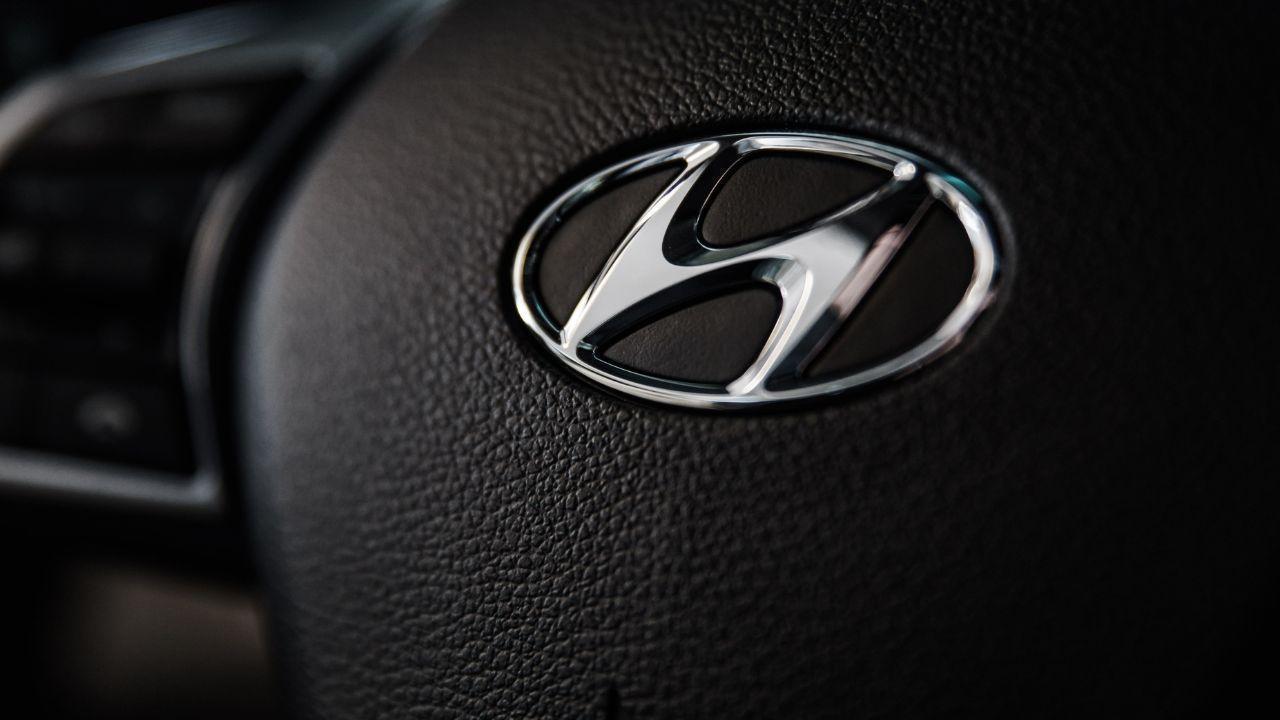
Post by : Avinab Raana
Hyundai probes suppliers over labor practices
Hyundai Motor, one of the world’s largest automakers, has launched an internal probe into the employment practices of its suppliers and contractors. This move signals a major shift in how global manufacturers are addressing labor concerns in their vast supply chains. With the automotive industry under growing scrutiny from regulators, human rights groups, and consumers, Hyundai Motor’s investigation into labor practices could reshape its compliance standards and redefine accountability in the sector.
Why labor practices matter in supply chains
Labor practices have emerged as a critical issue in global supply chain management. Multinational corporations are increasingly held responsible not just for their own workforce but also for how their suppliers treat workers. Hyundai Motor, which relies on a network of thousands of supply chain partners worldwide, faces the challenge of ensuring that each contractor meets ethical and legal standards.
The probe into supply chain labor practices is more than a reputational safeguard. It reflects an industry-wide reality: poor oversight can lead to financial penalties, regulatory action, and lasting damage to brand image. For Hyundai Motor, already competing in a crowded electric vehicle market, the stakes are high.
Pressure from regulators and watchdogs
Global regulators have been tightening their grip on companies linked to labor violations. From the United States to the European Union, new frameworks require corporations to monitor and report human rights risks across their entire supply chain. Hyundai Motor’s decision to scrutinize its suppliers’ labor practices comes at a time when companies in manufacturing and logistics are under unprecedented compliance pressure.
Labor practices are no longer an internal concern; they are a public accountability issue. By proactively investigating suppliers, Hyundai Motor is seeking to demonstrate responsibility before regulators impose further obligations.
A closer look at supplier dynamics
Hyundai Motor’s supply chain spans multiple continents, with heavy reliance on contractors in Asia, particularly South Korea, India, and Southeast Asia. Many of these contractors manage recruitment, factory operations, and logistics services on Hyundai’s behalf. This complex ecosystem creates both opportunity and risk.
Labor practices in outsourced facilities are often difficult to monitor. Issues such as excessive overtime, underpayment, poor working conditions, or use of temporary and undocumented workers can go unnoticed until a crisis emerges. Hyundai Motor’s investigation reflects recognition of these vulnerabilities.
Industry context and past controversies
The auto industry has not been immune to labor controversies. In recent years, global automakers have faced allegations ranging from child labor in raw material extraction to wage exploitation in component assembly. Hyundai Motor itself has been under the spotlight before, particularly in its U.S. supply chain, where subcontractors were accused of hiring underage workers.
That history makes this new investigation particularly significant. By targeting labor practices head-on, Hyundai Motor is not only responding to criticism but also attempting to prevent future scandals that could tarnish its supply chain credibility.
Transparency as a competitive advantage
In today’s market, transparency can be a differentiator. Hyundai Motor’s decision to investigate labor practices in its supply chain aligns with rising investor and consumer expectations. Ethical supply chain management is increasingly tied to brand loyalty and shareholder trust.
For Hyundai Motor, highlighting improvements in labor practices could boost its image in key markets, particularly in Europe and North America, where consumers and policymakers demand high ethical standards from manufacturers. Supply chain transparency is no longer optional; it is a requirement for competitiveness.
Balancing compliance with growth ambitions
Hyundai Motor is in the midst of an aggressive global expansion, especially in electric vehicles. At the same time, it must balance these growth ambitions with compliance obligations. Labor practices audits, supplier inspections, and contractual reforms require significant investment.
The challenge for Hyundai Motor is to maintain rapid supply chain scaling while ensuring that labor standards are not compromised. This balance between growth and compliance defines the modern manufacturing landscape, where ethical concerns are inseparable from operational success.
How Hyundai is conducting the probe
While Hyundai Motor has not disclosed all details of its supplier probe, reports suggest that the company is engaging independent auditors and compliance specialists. These experts are tasked with reviewing supplier contracts, conducting on-site inspections, and assessing hiring and employment practices.
The process is expected to be extensive, covering not only tier-one suppliers but also contractors further down the supply chain. By extending its oversight beyond direct partners, Hyundai Motor aims to close loopholes where labor violations are most likely to occur.
The role of digital monitoring tools
Technology is transforming how labor practices are tracked. Hyundai Motor is reportedly exploring digital supply chain platforms that use real-time data to flag irregularities in employment patterns. These tools, powered by artificial intelligence, can detect anomalies in worker hours, wage records, and subcontractor hiring practices.
By integrating technology into compliance, Hyundai Motor is positioning itself as a forward-looking company. Digital oversight could become the gold standard for labor practices monitoring across global industries.
Supplier response and industry reaction
Initial responses from Hyundai Motor’s suppliers have been mixed. Some contractors welcome the probe as an opportunity to align with international best practices and secure long-term partnerships. Others view it as a compliance burden that increases operational costs.
Industry peers are also watching closely. Hyundai Motor’s investigation into labor practices could set a precedent, prompting rival automakers to launch similar initiatives. What begins as an internal compliance effort may ripple across the entire automotive supply chain.
Implications for Hyundai’s global strategy
Hyundai Motor’s move goes beyond labor practices oversight; it reflects a strategic recalibration. By embedding ethical compliance into its supply chain, the company is future-proofing itself against legal, financial, and reputational risks.
This strategy could strengthen Hyundai Motor’s bargaining power in global negotiations, from government contracts to trade partnerships. Supply chain credibility, once a behind-the-scenes concern, is now a visible pillar of corporate strategy.
Ethical leadership in the auto sector
By addressing labor practices head-on, Hyundai Motor is positioning itself as a leader in ethical supply chain management. This approach could redefine how automakers compete, shifting the focus from cost and speed alone to responsibility and integrity.
Consumers, investors, and regulators increasingly expect corporations to lead with values. Hyundai Motor’s investigation into supply chain labor practices demonstrates that ethical leadership is becoming as important as technological innovation.
Implications
Despite the ambitious scope of the probe, challenges remain. Investigating labor practices across thousands of suppliers is resource-intensive and may expose uncomfortable truths. Some suppliers may resist compliance, and regulatory scrutiny could intensify once findings are made public.
Hyundai Motor will need to balance transparency with careful management of reputational risk. Revealing labor practices violations without clear corrective action could damage the company’s credibility rather than enhance it.
What this means for workers
At the heart of this story are the workers themselves. Hyundai Motor’s probe into labor practices has the potential to improve working conditions, wages, and rights for thousands of employees across its supply chain.
If successful, the initiative could set new benchmarks for fairness and dignity in global manufacturing. Workers stand to benefit not just from compliance on paper but from meaningful reforms on the ground.
A model for the future of supply chains
The automotive industry is at a crossroads, with supply chains expanding rapidly while accountability demands intensify. Hyundai Motor’s probe into labor practices could serve as a model for other industries — from electronics to apparel — grappling with similar challenges.
By embedding labor practices oversight into the DNA of supply chain management, Hyundai Motor is helping to define the future of global commerce. Ethical, transparent, and technologically enhanced supply chains may soon become the new standard.
Hyundai’s defining moment
Hyundai Motor’s decision to investigate supplier labor practices is more than a compliance exercise. It is a statement of intent, signaling that the company understands the inseparability of ethics and business in the modern world.
The coming months will reveal the depth and effectiveness of the probe. But one thing is clear: Hyundai Motor is stepping into a leadership role in redefining supply chain labor practices. For workers, investors, and the broader industry, this could be a defining moment in the evolution of global manufacturing.
Hyundai Motor, Labor practices, Supply chain
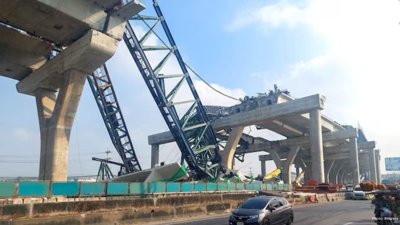
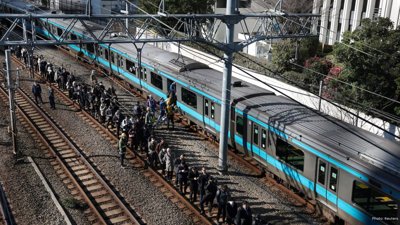
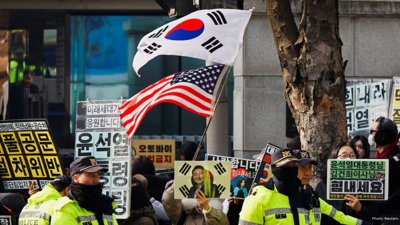

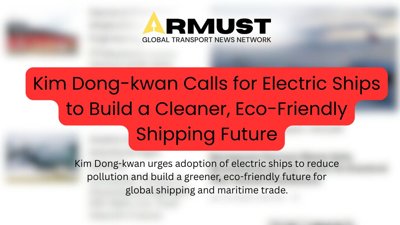





Advances in Aerospace Technology and Commercial Aviation Recovery
Insights into breakthrough aerospace technologies and commercial aviation’s recovery amid 2025 chall

Defense Modernization and Strategic Spending Trends
Explore key trends in global defense modernization and strategic military spending shaping 2025 secu

Tens of Thousands Protest in Serbia on Anniversary of Deadly Roof Collapse
Tens of thousands in Novi Sad mark a year since a deadly station roof collapse that killed 16, prote

Canada PM Carney Apologizes to Trump Over Controversial Reagan Anti-Tariff Ad
Canadian PM Mark Carney apologized to President Trump over an Ontario anti-tariff ad quoting Reagan,

The ad that stirred a hornets nest, and made Canadian PM Carney say sorry to Trump
Canadian PM Mark Carney apologizes to US President Trump after a tariff-related ad causes diplomatic

Bengaluru-Mumbai Superfast Train Approved After 30-Year Wait
Railways approves new superfast train connecting Bengaluru and Mumbai, ending a 30-year demand, easi